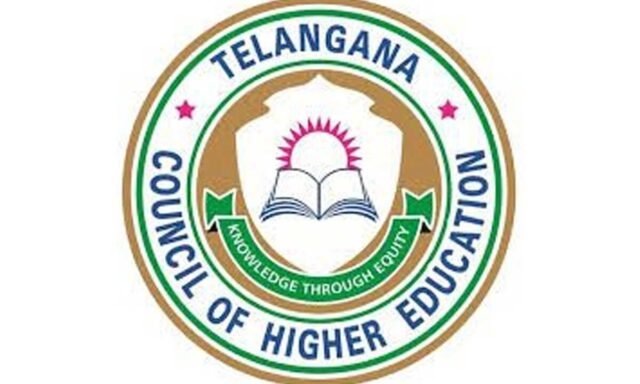Hyderabad: The Telangana Council of Higher Education (TGCHE) has initiated 12-point curriculum changes as part of its efforts to modernise the curriculum for undergraduate programmes in Business, Commerce, Law, and Management.
For this, it had formed a committee headed by TGCHE Chairman Prof Balakista Reddy, Council’s Chairman and Prof A Vidyadhar Reddy, Former Dean, Faculty of Management, Osmania University, Prof B Rajasekhar, Former Dean, School of Management, University of Hyderabad, Prof Sindhu, Director, School of Management, JNTUH, Prof V Appa Rao, Senior Professor, Department of Commerce, OU, Dr Ramesh Kumar M, Assistant Professor, Department of Business Management, MGU, Dr S Rajeswar Rao, Senior Faculty, Indian Institute of Management & Commerce, Hyderabad- as members of the committee.
The seven-member committee has made 12-point recommendations.
The TGCHE Chairman, Prof V Balakista Reddy, said on Tuesday, “In today’s fast-paced and technology-driven world, it is essential that our academic programmes are continuously updated to reflect the latest trends, industry demands, and global benchmarks. This revision will help bridge the gap between traditional education and modern professional requirements.”
Accordingly, the committee has proposed several recommendations to enhance the quality and relevance of the curricula. They include the alignment of Undergraduate and Postgraduate Programmes; the committee recommends addressing the overlap in syllabi between undergraduate and postgraduate courses in the same discipline. This will ensure a smoother learning progression and avoid redundancies.
Secondly, it wanted to bridge the gap between Distance and Online Education in its efforts to bridge the divide between traditional and online learning platforms, ensuring that students across various formats have equal access to quality education.
It recommended the ‘Multiple Entry and Exit Points’ to create flexible pathways, allowing students to enter and exit academic programs at various stages, and facilitating lateral entry for those wishing to switch disciplines or re-enter the educational system.
It highlighted the ‘Integration of Technology and Skill-Based Modules,’ to include cutting-edge technologies, such as Generative AI, and skill-based learning modules in all programs—BBA, BCom, and LLB—to enhance students’ employability and preparedness for the digital economy.
Stressing on the ‘Language and Communication Skills’, the committee proposed the retention of language courses throughout the three-year undergraduate programmes, ensuring that students continue to develop effective communication skills, which are essential in today’s professional environment. A key recommendation of the committee was, ‘Development of Indigenous Programmes,” to design its own programs inspired by national initiatives like SWAYAM, MOOCs, and NPTEL, which offer open online courses and promote greater access to quality education. It has specifically underscored ‘Faculty Development’ through Workshops, to keep faculty members informed about emerging trends in their areas of expertise, the committee recommends periodic summer workshops focused on professional development.
That apart, as part of bringing in global perspectives, it wanted the revised curriculum to be aligned with ‘UN Sustainable Development Goals (UNSDGs). Prof Reddy said that this key recommendation is, to ensure that the syllabi align with the United Nations Sustainable Development Goals (UN SDGs), preparing students to contribute positively to global challenges.
Further, the use of Technology for Inclusive Education is another recommendation to encourage the integration of technology and to bridge the educational divide between urban and rural students, ensuring equitable access to resources and opportunities.
That apart, ‘Mandatory Mentoring and Counseling’ was proposed to support students in their academic and professional journeys, the establishment of mandatory mentoring and counselling programs will provide guidance and emotional support throughout their studies. It made employability an important factor, said ‘Industry and Start-Up Collaborations’ was proposed to strengthen partnerships with industry and local startups, encouraging internships and hands-on experiences through Corporate Social Responsibility (CSR) funding.
As part of creating multiple pathways, it has stressed ‘Collaboration between Conventional and Engineering Colleges’, to facilitate cross-disciplinary learning and technical assistance, it is suggested that conventional degree colleges collaborate with nearby engineering colleges to enhance technical resources. These recommendations aim to create a more effective and relevant educational framework that meets the needs of students and the workforce alike, the TGCHE chairman said.








